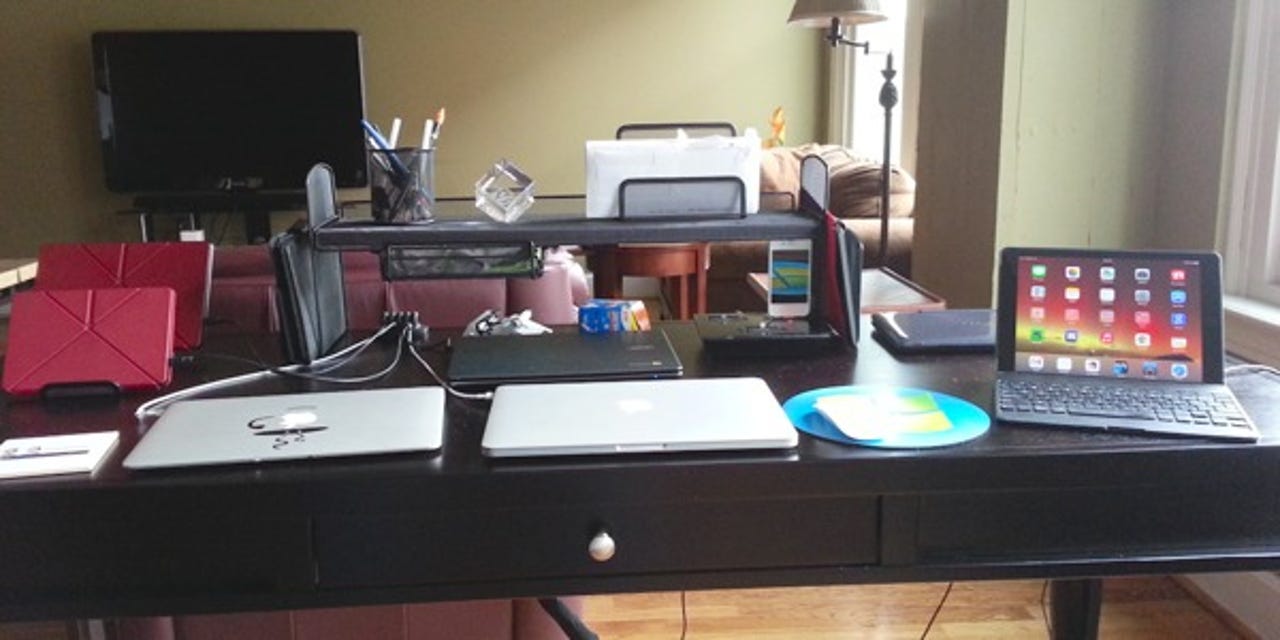5 tips for getting the most out of working at home

I've been working at home for a long time and I've adjusted my setup over the years to the one I have today. These adjustments have been aimed at helping me get the most done with the fewest distractions, while helping me avoid the isolation that working outside a corporate office can create.
Create a defined home office space
One problem with working at home is the fact that's where you live. That sounds obvious but I regularly run into other home workers who admit they are working all the time. When questioned about it a common factor is that they have their desk/office in a part of the house that is a high traffic area. Their families are constantly interrupting them during the day.
Featured
This steals focus away from the work tasks at hand and is a terrible thing to do. It's no different than bringing your kids to work every day to your cubicle at work. You wouldn't do that and you shouldn't do that at your home office.
If possible, create an office space at home that is clearly defined and away from the daily trappings of home life. The family should understand that when you are in your office, you are not to be disturbed. Explain to the kids that when Mom or Dad is in the office, they are to treat it as if you are working in an office outside the home.
Get the best office chair you can
A good office chair can be upwards of a thousand bucks, but they are worth their weight in gold over the long haul. You spend hours each day sitting in the chair at the desk, and getting a good chair is crucial.
Be sure the chair you use has a full range of ergonomic adjustments. You need to get it adjusted just so, height, tilt angle, and lumbar support in particular. Your back will thank you.
Try to keep consistent work hours
A big trap that many home workers fall into is working all the time. It's easy to do when your office is right there in the home.
The best way to avoid this is to keep consistent work hours. Get up and go to work at the same time each day, just as you would if you worked in a corporate office. This trains you to follow a typical schedule, making it easier to shut down at the end of the work day.
Take lots of breaks
This is obvious, but many home workers get so wrapped up in work they rarely step away from the desk. This is the fastest road to burnout, even working at home.
It doesn't matter what you do on your breaks. Go for a walk, step into the kitchen for some water, or read a book. The point is to let your mind rest and recharge. This is vital over the long term.
Reach out to coworkers every day
Isolation is the bane of home workers, and a good way to combat it is to video chat with coworkers regularly. This is a good tool for putting a face on the ones you collaborate with, just as you would in a real office.
TechRepublic
This also makes sure you're never out of your colleagues' minds. It's as important for them to regularly see you working as it is to fight isolation. It's also a valuable stimulation of work thought processes. We feed off each other in the big office, we should do it at the desk at home.
Treat working at home like going to the office
There are lots of other things you can do when working at home to keep home and work life separate. These five ways are some of the most important, and should be a good place to start. The key is to treat working at home as you do going to an office. The venue has changed but the work ethic must remain the same.
If your work allows you to get stuff done outside the home office, occasionally work in a coffee shop or similar envionment. Working in a coffee shop may be a cliche, but it's a good way to fight isolation.
These best practices work well for me, but everyone's situation is unique. If you have a tip that works well for you, share it in the comments below. We all may learn something as a result.
See also:
